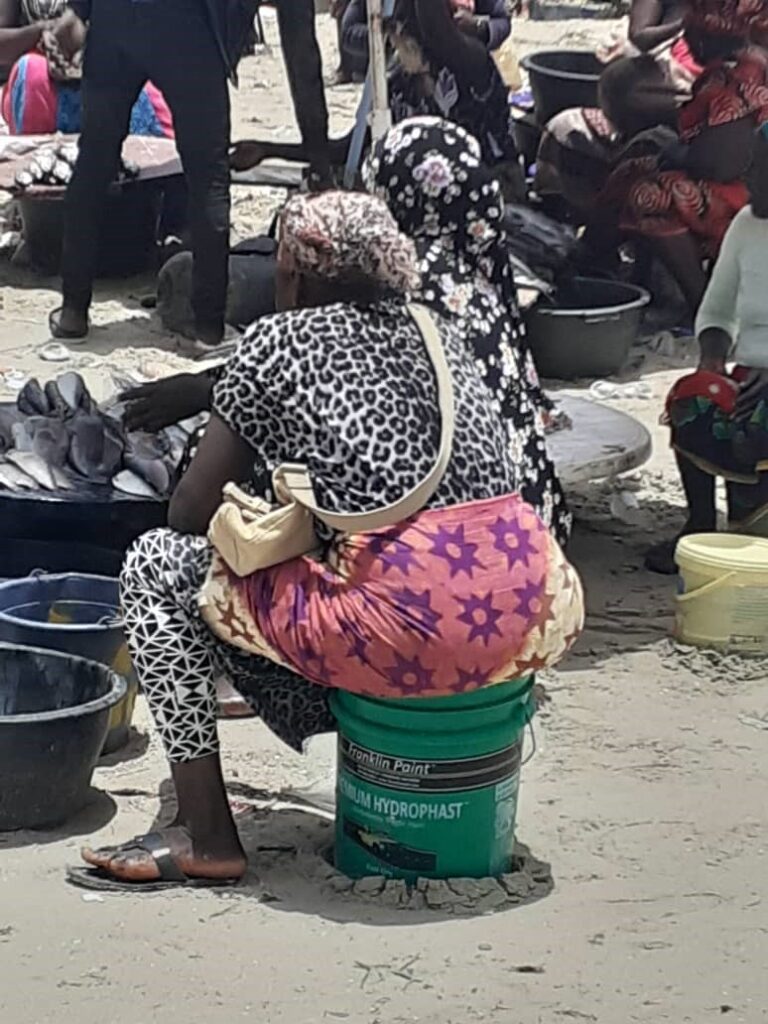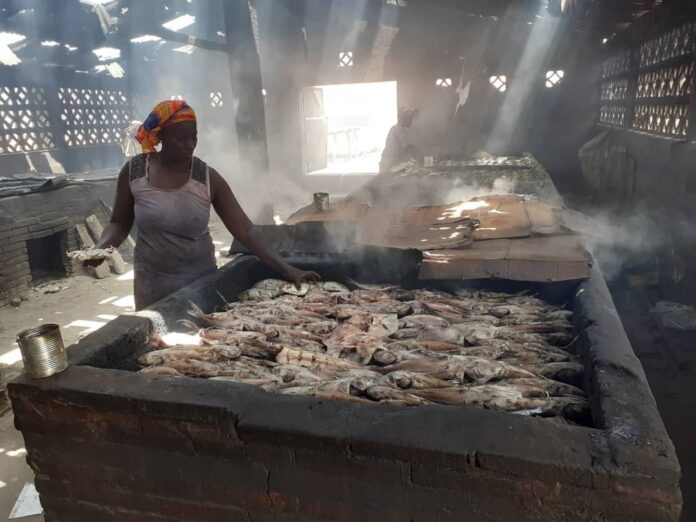With Madiba Singhateh
In this environmental column, we conducted a Vox-pop on the scarcity of fish in the country. We speak to fishermen/fishmongers (women and men) about the issues regarding the continuous scarcity of fish.
Nyima Toray, a fish seller at Serekunda Market, said she bought a crate of fish for 2000 dalasi. She was selling 4 bonga fish for D50 when asked how much seven bonga fish cost, she said D100.
“Fish is very expensive. I bought the crate for D2000 at Tanji. Can you ask the president to help us with the price,” she said?

Touray has been sitting since in the morning just to sell off the whole fish basket. She looked desperate. She said she cannot tell us what causes the price hike but what she wants the government to help them in regulating the fish prices at the market and landing sites
Since the scarcity of fish continues to hit the country, the price of fish is high and expensive. The price of red snappers ranges from four for D100 to D15.
“For me, I bought the one costing D150, so I can cut it into three pieces,” said Maimuna Baldeh.
Baldeh said she did her shopping “Ndouga” at Lamin Market in the West Coast Region. She bought four bonga pieces for D50.
“The price hike is becoming a norm now, not only have all the prices on commodities escalated including vegetables, definitely as we speak everything at the market is expensive,” he said.
When asked how she felt about the scarcity, she said that the scarcity of fish has become a norm now and that they are finding it difficult to cope with the situation because all prices of commodities have escalated.
At the Serekunda market, Ndey Jagne, who sells red snapper, said the four small red snappers were for D100 and the bigger ones for D200. According to her, she bought a basket of snappers for D7000.
“We used to have it for D3000 to D5000 and now D7000,” she said.
She also expressed similar concerns that everything at the market has increased.
Speaking to Lamin Markalo, a teacher, said fish is a problem in this country, saying the fish are so small nowadays, such that one cannot even chew it.
“We used to buy pelagic fish, such as the bonga. But now, that is even scarce and difficult to get,” he said. “Could you imagine these, where the cheapest fish one can afford now becomes one of the hardest for the populace and the most worrisome issue is that fish is going to be scarce”.
Mr. Makalo said at the market, they ask for D150, D200 up to D300 for a fish which they cannot buy because it’s expensive.
“We thought it could have been cheaper but as we speak the price of fish in the market has skyrocketed,” he said.
Ebrima Touray, a tailor, said that fish scarcity is one of the difficult situations they are facing. He said previously, she gave her wife D150 to prepare lunch. He said they will be able to have good fish. But he said he cannot get anything for his wife in the market now.
“This is a problem because the scarcity of fish has aroused issues between families and households because people have stopped eating fish because it’s expensive,” he said.
“Now only the rich could buy the fish or the government top officials because they have the money. But the layman and public cannot buy the fish now,” he explained.
Touray said he is desperate as it always takes time before he eats a good fish because he cannot afford it.
Omar Gaye, the Public Relation office of the Artisanal Fishing Association, said they knew about the price hike.
He said they are trying by any means necessary to remedy the situation, adding that “all Gambian fishermen in the country should try and have an identification card so that they are part of the system.”
Mr. Gaye said those selling the fish from landing sites and other parts of the country are mostly non-Gambians and their interest is how they are going to amass wealth and syphoned them in their countries.
“This does not happen anywhere in the world except in The Gambia. We want everything to be controlled by the Gambians so that we know the body will sell it beyond a recognized price for all” he said.
He said the market does not have any control, noting that anybody can do what he/she likes and “anywhere you come from you just get into the system. It should not be like that.”
Mr Gaye said they have engaged the fisheries ministry so that they can be able to control the marketing prices at the market because they cannot tolerate it.




















